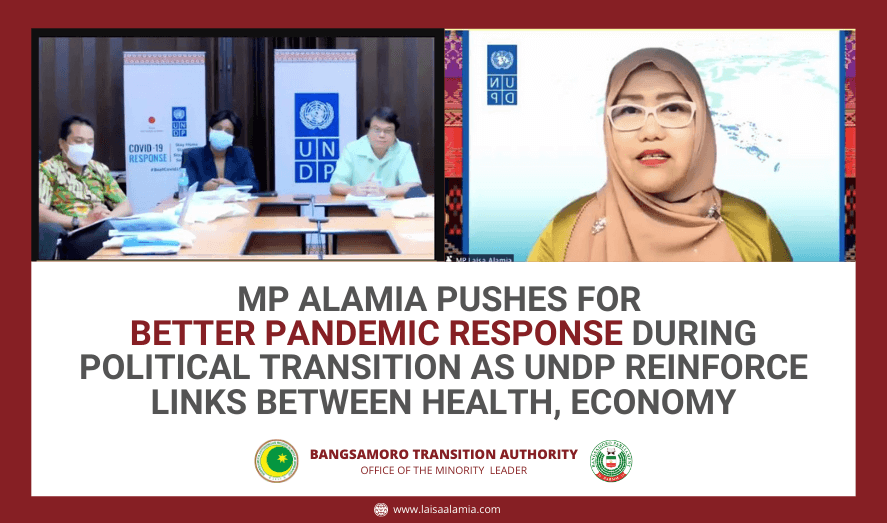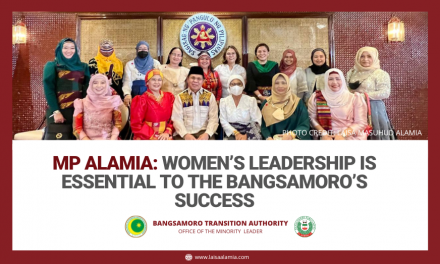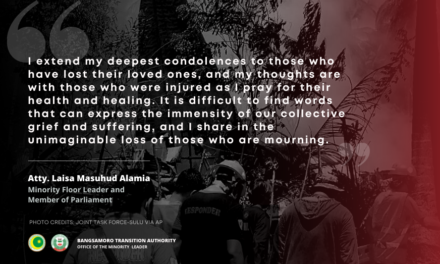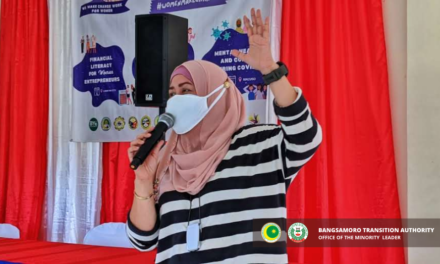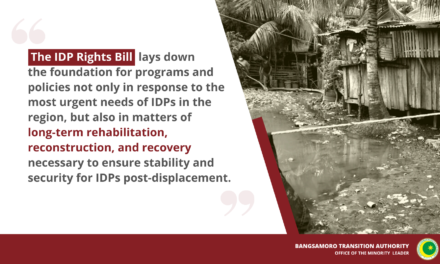On Monday, April 19, the UNDP launched a report that looks into the policy and program responses of the BARMM Government to the pandemic, while laying down policy recommendations to support the government’s transition and push towards achieving an inclusive, resilient, and sustainable development.
“This report and its launch,” according to UNDP resident representative Selva Ramachandran, “is a collaborative work with Bangsamoro Planning and Development Authority (BPDA), done with support from the embassy of Japan and active involvement of the academe who has supported the research work.”
“With over 140 million people affected by Covid-19 around the world, the virus is everywhere,” he said. “One year down the road, we realized that it is important to identify and document the disproportionate effect of the pandemic to those who are facing high levels of vulnerabilities.”
it is within this framework that an economic impact assessment was done, which is now consolidated in a report titled The Socioeconomic Impact Assessment of COVID-19 on the Bangsamoro Autonomous Region in Muslim Mindanao (BARMM). It synthesizes findings from three research studies which Ambassador to the Philippines H.E. Kazuhiko Koshikawa sees as a big push to the Bangsamoro regional government’s recovery efforts, as the report identifies “the socio-economic fallout of Covid-19 and matches them with policy recommendations that are evidence based and pragmatic.”
“This project shed light on the real plight of the locals in this pandemic that might have been otherwise overlooked by our existing efforts.” he said.
BARMM context and recommendations
“The idea that we have to sacrifice the economy for health or sacrifice health for the economy. Perhaps it is best to reframe our mindset — instead of treating health and economy as trade-offs, we should treat them as two sides of the same coin,” Bangsamoro Parliament Minority Floor Leader Atty Laisa Alamia said. “Our health and the economy are intimately tied to each other and often move in the same direction.”
Having worked as a nurse before becoming a human rights lawyer and public servant, MP Alamia has shown a deep understanding of the pandemic and its long-term effects on the economy and impacts on the regional transition, as she led the minority bloc in proposing recommendations to the regional government with regard to its Covid-19 response.
“We need to boost public confidence by showing that the public’s sacrifices have worth, that we are making progress,”she notes. “We should invest more in the Ministry of Health; we need investments to build and improve health facilities to effectively test and trace, and to procure and equitably distribute Covid vaccines. I think that’s the priority now. We win public trust when we show we have solutions, and we demonstrate that the region’s leaders, our facilities and institutions are working for them, and that the public’s sacrifices will not just lead to more sacrifices.”
Among MP Alamia’s earliest recommendations in terms of the regional government’s Covid response is to “provide targeted and direct assistance to indigent households,” which has been done based on the report. “We need to continue doing that, and we need to give wage support and subsidies to medium and small businesses and provide cash for work schemes for those who were laid off and are struggling to find new jobs.”
“Health goes hand in hand with the economy,” she said, “and this dovetails into the peace-building and normalization process of our transition. In its swift and effective response, the Bangsamoro government should be able to show that ratifying the Bangsamoro Organic Law was the right decision.”
The report
The UNDP notes that BARMM is “still a region in transition towards establishing a fully autonomous political entity and completing its normalization processes.” Its transition has been affected, however, by the COVID-19 crisis even if cases in the region have been kept low.
The BARMM government has adapted and responded to the pandemic by addressing pressing concerns, which made the attainment of its 12-point priority agenda more challenging. According to report, “the BARMM Government’s response during the COVID-19 crisis focused on improving social welfare and development, essential health services, economic recovery, infrastructure support and governance, as articulated in the Bangsamoro Region’s Response and Recovery Plan for COVID-19 2020-2022.”
The report was commissioned by UNDP in the Philippines in collaboration with the BARMM Government, with funding support from the Embassy of Japan in the Philippines. It may be accessed at: https://www.ph.undp.org/content/philippines/en/home/library/the-socioeconomic-impact-assessment-of-covid-19-on-the-bangsamor.html

